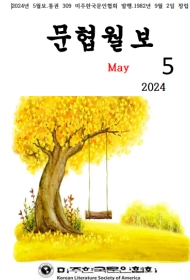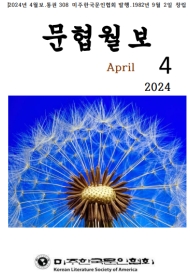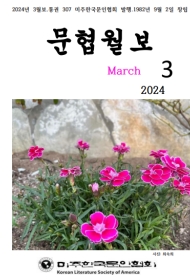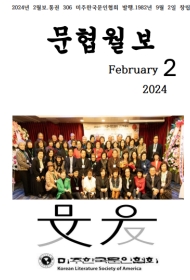Media and Politics
Wolran Kim (Dec 2010)
Media has been wielded great influence in politics throughout history. That is why freedom of the press has been a big issue always. A means of public communication in politics changed significantly with the invention of television in the mid 20th century. These days are the era of digital new media called e-politic and let's examine the historical relationship of the media through TV presidential campaign ads. TV campaign ads are important strategic tools which have decisive power in election results. The purpose of this document based assignment is to give you the opportunity to evaluate to what extent TV presidential campaign ads have been powerful political tools and in what ways they have shaped and simultaneously reflected the culture and political activity of Americans.
I selected three presidential elections: Kennedy vs. Nixon in 1960, Clinton vs. Dole in 1996, and Obama vs. McCain in 2008 from http://livingroomcandidate.movingimage.us/, and examine the TV ads for both candidates through the fundamental themes, most appealing, stylistic techniques, any correlation between two candidates, and election results.
http://technorati.com/videos/youtube.com%2Fwatch%3Fv%3D69OxmI9JHsk
http://blog.mlive.com/grpress/2008/04/collegeage_voters_get_involved.html
1960 / Kennedy vs. Nixon
Kennedy's message was making a much better country overall in the areas of military, economic, social and education, and was aimed at Nixon, an experienced career politician. His commercials tried to gain the trust of voters by the topics of efficient social welfare, a substantial check to the Soviet Union, and improvement of the treatment of African Americans. He focused on image making by emphasizing qualities of leadership through the real people: Harry Belafonte, the Sills Family, Henry Fonda, and Mrs. JFK. Nixon's message used foreign policy as a mechanism supporting his leadership such as titles of ads, 'Important Issue, Peace, Best Qualified', and weighted down with positive references. An emphasis on policy and experience was possible because he was the current regime, and he stressed defense of freedom of country based on military and economic power from communism, the Soviet Union.
Kennedy's ad, 'Debate' which attacked blunders of the current regime in military, economic, social and educational aspects, was a good concept to gain confidence. The 'Religion' ad, which answered a woman in a crowd’s concern as the first Catholic president, was impressive. Nixon's ad, 'Most important Issue', which emphasized an international position to maintain freedom and peace in the country, was the most appealing one. At the time the sensitive international situation- modern civil rights movement, cold war, Fidel Castro's communism in Cuba, deepening friction with the Soviet Union- was convincing enough.
Kennedy's ad, 'Henry Fonda' which showed the candidate's active play in World War II like a movie, was impressive. That was effective advertising to appeal based on his courage, perseverance and patriotism. Another one was 'Mrs. JFK', which showed his interest of minorities through her speaking Spanish. Nixon, the current Vice President preferred to highlight his position and gain confidence with the background of the Oval Office.
Kennedy made over 200 commercials with a variety of themes and styles of concept for the effects of TV broadcasting. He efficiently used media campaign's effectiveness: 'Debate' which brought into relief his speech ability and 'Nixon's Experience?' which attacked Nixon, who placed his political experience at the head, by malicious propaganda. He focused on image making of leadership using real people: Harry Belafonte, Henry Fonda, the Sills Family, and Mrs. JFK. Also he tried to create intimacy and realism through a variety of advertisements which used speeches, interviews, movie stars, artists, music, songs, stumping and all audiovisual material.
Nixon's ads focused on policies and did not attack the Democrats. He highlighted the leadership of the current administration, but the frustration was given by the same image for each ad: he seemed trapped in his office all the time. It was all about policy, but he did not show a specific blueprint for the future. Another weakness was the feeling of distance; he had no contact with voters at all. Also he did not pay enough attention to domestic problems while imposing strength of foreign affairs.
The ‘Kennedy Score’ derived from Kennedy's word in the Democratic presidential race on TV policy debates, and it means a fun game which is difficult to predict until the last minute. Kennedy won by a 0.2% difference at this election, and the game ended with the Kennedy Score. ABC chose one title 50 years ago that the Kennedy-Nixon TV debate made Kennedy to a superstar and Nixon to a loser. Television was a dominating force itself, and TV debate was the head of most heated confrontation during the election campaign even though TV for entertainment did not pay much attention to politics until the Kennedy-Nixon debate. The U.S. presidential candidate debate was not reopened until 1976 with Gerald Ford (Republican) vs. Jimmy Carter (Democratic). Because Nixon, who was a Republican candidate in 1968 and 1972, refuse to debate, and the reason of no TV debate for 16 years, was the candidates were afraid of the impact of televised debate. Kennedy's image was inferior, but it was reversed after the TV debate, and the cause of Nixon's failure was lack of defense. The gap of 0.2 percent was a possible enough number to overcome according as Nixon. Nixon's main cause of failure was neglecting domestic problems to emphasize international issues, the distance from people and monotony of the ads using only his office, and no using effects of media. Nevertheless, the reason for the narrow number, 0.2 percent was that the Cold War and the historical background was a plus factor for Nixon, who emphasized his strength.
1996 / Clinton vs. Dole
The main messages of both candidates were the economy, foreign policy, education, drugs and alcohol, health policy and the interest directly related to public life. Clinton's theme was a positive message concerned with economic recovery, unemployment and education. Dole's theme was primarily attacks on Clinton's current blunders. Clinton's ads, 'Next Century' was maximizing consensus, suggesting a bright future of hope used common people and the appearance of his active leadership. 'Surgeon' hopefully showed fiscal education policy through the scene, talking about children's wishes and college life. The Democratic policies with colorful editing contrasted to the Republican policies with black and white effect. Dole's ads, 'Classroom' was his most effective one and showed clearly and dramatically wasting taxpayer money due to the illegal aliens, and it told us the disadvantages for citizens to bear.
Clinton's ads, 'First time' and 'School' was impressive because most realistic children's issues which voters faced on tobacco, alcohol and drug problems, were approached by showing possible solutions. Dole's ads, 'The Story' was meaningful to stimulate the viewer's emotions to trust the candidate's personality, focusing on life background and experience of surviving from illness.
Clinton's strategy of 1996 reelection campaign was more favorable issues than the Republicans (health care, education, environment, etc.), to enhance the discrimination and disadvantage issues (taxes, crime, a balanced budget, welfare reform, family values, etc.), and to mitigate distinction. He used his own strengths and leveraged his base, and he succeeded in pulling voters up to by making an issue of disadvantages. He used 'Dole and Gingrich's stance for Medicare', and continued speech about 'The era of big government is over'. He proposed legislation about 'Oppose teenagers smoking and let them wear school uniforms', and signed into 'Welfare reform' law. He kept far from orthodox liberals supporting 'Middle-class tax cuts' policy, and he did his best to build a new image of a national leader from the shedding image of Little Governor Clinton. Also he had the largest state, California, as his base of support.Dole focused on image making with emotional biographical ads, and highlighted Clinton's mistakes. He challenged using black propagandas about health care, tax policy and moral problems, and showed Clinton's first term commitments and significant results to defame his current administration.
Clinton fell enough to lose the House and Senate both for the first time since 1946 in the Republican Revolution, and was terribly defeated in mid-term elections. But he was re-elected, 49.2% vs. 40.7% effectively using the new media campaign. His moral authority hit the ground with the various scandals, but he laid great emphasis on his leadership of the new policies before his weakness showed. He created a value agenda constantly bringing up small deals which could appeal directly to voters as practical policies. He succeeded in making the image of a people-friendly leader, not president as the head of the party. In addition, we can see the importance of the advertisements' effect through propaganda and slander which took up over half of both candidates' ads. Dole was the country's war hero who lost one arm, and he appropriately used three years recovering life story and willingness as the seventh president challenger from World War II generation. He broke Clinton's re-election using current government's blunders, but the age of 73 years old was the heaviest burden as candidate. He did not overcome the disadvantage of age because he did not show off his personality and philosophy in the foreground through his words and actions like Roosevelt and Clinton.
2008 / Obama vs. McCain
The 2006 presidential primary themes and messages were tax relief, health policy, energy policy, unemployment policy, gas price for economic policy and the situation in Iraq and Afghanistan for foreign policy. Both candidates advocated 'Change', and strengthened their faith about making a better country in the situation of a rapidly changing world. Obama's ad, 'Yes We Can' showed the hope of a brilliant advertisement which matched ordinary people as a united mind using rap music, instruments and singers. This was impressive enough for young voters, and 'Al the Shoe Salesman Gets a Tax Cut' showed reality of working classes with slurred speech and actions of the characters, which was really good. This advertisement showed simply and clearly the tax relief policy. McCain showed confidence of leaders who created history, willingness to succeed, and tradition and pride of the United States using speeches of Churchill and Roosevelt.
Obama's ad, ‘Country I Believe In’ emerged from his biographical story. He grew up under a single mom and grandmother in a marginalized group, but he had a positive mindset which can contribute to neighbors and country with the dream of a leader. This dream would come true as the first African American president in history. Showing the growth process brought intimacy and to evoked sympathy. The words, 'Treat your neighbor as you want to be treated' gave the desire to participate in a social life and willingness of 'Change'. McCain drove dramatically his courage and conviction; never surrender, never give up. His main message was "Country First" which showed his long time activity in politics compared with historic characters, and emerged faith and confidence of the future.
Obama drove his dream of national leaders naturally through his biographical life story in 'Country I Love' and 'Country I Believe In'. And he attacked McCain with defamatory ads: 'Maverick, No More', 'Proud of That commercial', 'Betteroff,', 'Embrace', 'Fundamentals', 'Spending Spree', and 'Need Education'. Those ads made us feel like there would be a regress to the past, the Bush administration, if McCain was elected. McCain's emotional scene often matched with historical moving scene, and they sat against Obama's future-oriented ads.
The result was Barack Obama's victory. Obama had a record vote of 52 percent, which was the first time over 50 percent for a Democratic candidate since Roosevelt (1932). The voting rate was close to 65 percent from participation of young and minority voters. This election was remarkably sharp and aggressive, and the advertising was unrestrained and future-oriented with bold statements. The change toward dream in reality has much more appeal than impressive past in history to the people who want new visible changes. The financial crisis erupted in September the same year, hit the American society, and the next president should be the leader who must build up the new United States and overcome the economic crisis and the failure of previous government. Obama’s campaign logo with his first letter "O" symbolized the sun and put on a blue background compared to the other candidates who emphasized just their flat name. He maximized his image of hope and change for the future. John McCain also argued for changes, but it was hard going to explain how his four year future would be different from the Bush administration, as he himself was in favor of more than 90% of the current bills. Eventually, he claimed a lack of consistency, and did not win the trust of the voters failing to differentiate between the Bush administrations.
http://technorati.com/videos/youtube.com%2Fwatch%3Fv%3D69OxmI9JHsk
http://blog.mlive.com/grpress/2008/04/collegeage_voters_get_involved.html
Digital media affecting political engagement today and there are differences between the television ads and YouTube on the impact of digital media on young voters. Is New Media a television, or a computer, or telephone line, or a fiber optic cable, or wireless data link? New Media, referred to as the digital age, are all of them and more than that. People use media and media uses people. Increasingly there is blurred distinction between journalism and non-journalism, and new media is getting popular and commercialized, and has online version of television, radio broadcasters and newspapers. Governments, businesses, interest groups and hobbyists, they all can communicate one-to-many through their own site, and are able to detect a myriad of data banks. The topic of the 21st century was the Internet represented by digital, cyber, IT and dot-com. The Internet craze is producing revolutionary change in every corner of the world, planting brilliant rosy hopes and expectations for the future. Somebody said that the power of the 21st century comes from the Internet which opens the way for the future, not capital and military strength.
The Internet revolution of the end of the 20th century has also brought a big shock in the modern political movement and will start a new blossoming of democracy. Information is specific facts and knowledge which communicate topics or events. Democracy works differently along with the way of generation, distribution and application of the information. If someone is excluded from the information, he will be isolated from political power. There is concern that the society would be fragmented, caused by low information costs and various social and political associations through the Internet. We are constantly creating new values by exchanging new information through the World Wide Web, and these changes directly affect all human life. But people, who are unfamiliar with the digital tier, have a sense of insecurity and alienation in this information-oriented society. One of Obama's black propaganda was talking about McCain's computer illiteracy and assailed him as a candidate for the absence of leadership in the campaign.
In the future, the politicians could just use high-leveled multi-player games to attract young voters for his camp instead of boring speeches and slogans. The U.S. Army has introduced online games to collect young volunteers, and active politicians will use the same approach to rally supporters. Spreading of bilateral dialogue through the network will make millions of voters enjoy political 'Games' in their living room. Many experts said the cause of the collapse of communism in Eastern Europe was the influence of television. But the Netizens are ordinary citizens who do not have expertise and responsible leader forces, so they are just the public who don't know where they will collide like a thrown football or locomotive without brakes.
Compared to TV, YouTube is huge. If TV is a study room in the house, YouTube is a public library in big city with quantity and quality. TV broadcasts have a limited time, program and time constraints of reality; compared to YouTube (Internet) which has infinite information and materials. But a lot of YouTube's information is non-professional and non-technical material.
The most important feature is that many candidates, who could not announce themselves through traditional media, will have a chance through the Internet in the way of the free exchange of information. Politicians, who provide appropriate information for target groups will concentrate on substantial content rather than relying on image making on TV. Internet users can select the information which they want to have and get wise choices. But the democracy of free expression means sharing with other people beyond their view, so it will be ignored if people select only what they want to see.
For that reason, the Internet would be degraded to tool for personal purposes rather than social purposes. The filtering function of the Internet will make Netizens more likely to depend only on biased information instead of communicating with other groups, and personal preference will be more central than civic responsibility in decision-making. Ultimately, the Internet only strengthens the same class' power rather than help communicate between different social groups. The Internet will contribute greatly to the advancement of democracy if it represents the individual mind and associations. So we cannot be sure whether the Internet has only positive influence if any certain groups receive the benefit of new media. The Internet is only a tool of communication technology. The impact of the Internet depends on the kind of information held in Internet, and this is same as TV not associated with political participation in spite of its huge potential. The Internet’s effect may vary depending on political environment and political culture.
Clearly the development of the media brought the revolution of politics and changes of political culture. One of the problems in the U.S. political process is low participation as appeared in the various election results. It has never exceeded 60 percent, 1996's election was not even half, and 2000's was 51.3 percent. Certainly citizens can get political information easier than ever before because of the internet which has no limit. However, we cannot be entirely sure that the Internet will expand political participation, reduce costs, and increase accessibility. The Internet population was 44% in 2000 and 54% in 2001. This trend shows new Internet users increasing each month by nearly 2 million. According to a survey of University of Maryland in 2001, 55% of Internet users have experience of access in government sites in the last year. The mainstream of E-politics in the future is opening of the legislative activities and detection and response of public opinion. Modern politics should pursue transparent politicians through real-time response of Netizens, immediate feedback, and collecting of public opinion from surveys. Public power has been emphasized in this era, but social evils may exist (a false charge, a libel, disparaging, and a covert propaganda) because of the anonymity of the Internet. Also it could lead to the devastation of human relationships and collapse of the principles of cyber society. TIME Magazine selected YOU for this month's figures, and this means everyone has a great power not a specific person as before because of Internet. The Internet may contribute to development of democracy when it helps to enhance social trust in connection with the individuals who realized their goal to achieve social or political participation. The worth of media will be evaluated according to how citizens use them.













